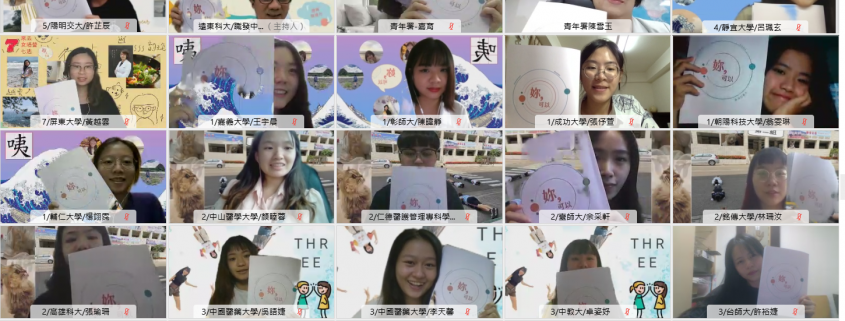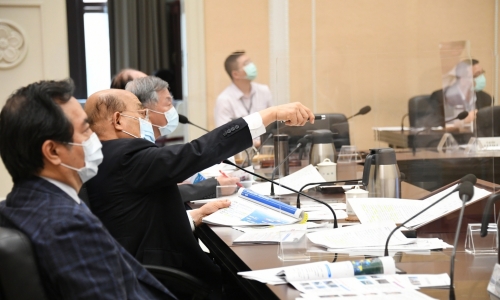APEC Women Builders Creating Inclusive Future Online Conference Hosted by the Executive Yuan for Exchange of Experiences and to Encourage Women to Enter the Field of Builders



The Department of Gender Equality (referred to as the Department below) of the Executive Yuan stated on 28 July that the Executive Yuan held the two-day APEC Women Builders Creating Inclusive Future online conference on July 28-29 with subsidies from Asia-Pacific Economic Cooperation (APEC). Ministers Without Portfolio Ping-cheng Lo and Audrey Tang, along with the chairperson of the APEC Policy Partnership on Women and the Economy (PPWE), Mrs. Renee Graham, and nearly a hundred representatives from governments, industries, and academia of the APEC member economies participated to explore the challenges and opportunities of women in the fields of construction and engineering, and how to support women in gaining concrete economic equality through the collaboration between the public and private sectors and the exchange of international experiences.
The Department stated that in consideration of the difficulties faced by women in non-conventional fields such as those of technology, telecommunication, construction, and agriculture, Taiwan had presented several international initiatives in APEC since 2013 to encourage women to gain access to fields where earnings and chances of development are higher, to improve occupational gender segregation and to promote women’s economic empowerment. The APEC Women Builders Creating Inclusive Future Project, proposed in 2019 with the topic of the construction industry in consideration, not only obtained subsidies from APEC, but also the support of more than half of APEC member economies with the prospect that through the sharing of experiences by women role models and international research, the issues and root causes of gender inequality in salaries and the lack of representation of women in the management and decision-making groups can be revealed, and at the same time, the comprehension by decision-makers in the public and private sectors of the benefits that gender equality could bring to the organizations or firms can be raised.
The Department indicated that this two-day online conference was an event to publish the results of the APEC Women Builders Creating Inclusive Future Project. The results included the “Manual of Best Practices,” a compilation of experiences shared by prominent women architects and engineers from Australia, Japan, Malaysia, New Zealand, the Philippines, the U.S., and Taiwan to substantially encourage women to participate in the fields of construction and engineering, and a policy suggestion document developed based on surveys obtained from first-line practitioners in the Asia-Pacific region. Four guidelines: “promoting women to participate in the field of construction,” “reducing conflicts between work and family”, “creating a healthy and safe workplace,” and “ensuring fair career development opportunities” and other concrete suggestions were proposed to guide the public and private sectors to take proactive actions.
Representing Taiwan, Minister Without Portfolio Ping-cheng Lo indicated at the opening ceremony that an increasing number of women are participating in the fields related to construction, whether in academia or the industry, and a consensus for the demand of gender diversity and tolerance in the construction industry is gradually being formed. This creates a favorable environment for women’s talents, allowing them to gain access to and stay in the industry to be promoted and realize their potentials. It is expected that through communication and exchange of experiences, all economies in the APEC region will be encouraged to jointly increase women’s participation in the building field. As the event’s opening guest, the chair of the APEC PPWE Renee Graham affirmed Taiwan’s taking the initiative and looked forward to seeing it take a leading role in future initiatives.
The Department emphasized that despite the constraint of time difference in the Asia-Pacific region, calling on representatives of industries, governments, and academia at home and abroad to participate at the same time had been a success. They joined hands with successful women leaders in the construction field in presenting concrete and feasible practices through their sharing of life experiences. In addition, through policy measures, skill training can be provided, and strategies favorable to the industries formulated to nurture more generations of women architects and engineers, helping them gain access to the industries, initiate careers, and reduce the gender pay gap.
Sources: The Department of Gender Equality



